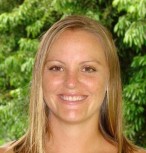DNA reveals the past and future of coral reefs
New DNA techniques are being used to understand how coral reacted to the end of the last ice age in order to better predict how they will cope with current changes to the climate. James Cook Univer

From 2005 to 2022, the main node of the ARC Centre of Excellence for Coral Reef Studies was headquartered at James Cook University in Townsville, Queensland (Australia)








Abstract: Many global measures of economic success only account for the production of economic capital without accounting for environmental externalities, and the result is an unstable system where the desire to maximise short-term profits works against desires to preserve long-term natural and human capital. The financial liability for marine resource degradation is misplaced and taken up by governments and non-profits. On the flip side, profit motives can be redirected to create self-sustaining systems that produce ecological, socio-cultural, and economic outcomes through “impact investing.” While impact investments are being tested, a significant funding gap remains for marine conservation. Innovative finance mechanisms exist, but are relatively untested in the marine conservation context. Financial decisions are often made without stakeholder involvement, after participatory conservation plans are finished. This research will investigate if and how impact investing can achieve marine conservation outcomes, design and test participatory processes for selecting marine finance mechanisms, and critically analyze the implementation of one finance mechanism in detail – marine biodiversity offsets in the Great Barrier Reef World Heritage Area.
Biographies: Melissa Bos received a BS in Chemistry and Marine Science from the University of Miami, after which she began working as an environmental consultant. With a desire to focus on the science behind coral reef management, Melissa then went on to earn a MS in Oceanography from the University of Hawaii at Manoa where she investigated nutrient dynamics in coral reef ecosystems. As a NOAA coral reef management fellow placed within the State of Hawaii, Melissa facilitated stakeholder-driven Local Action Strategies to address key threats to coral reefs. Melissa then became the Hawaii and Pacific Island Coordinator of NOAA’s Alliance for Coastal Technologies where she facilitated partnerships between resource managers, researchers, and the technology industry. She has held faculty positions at both the Hawaii Institute of Marine Biology and Hawaii Pacific University. As Director of the Global Marine Partnership Fund at Conservation International, Melissa began to focus on innovative finance and participatory strategic planning for large-scale marine conservation initiatives. As Director of the Hawaii Marine Program at Conservation International, Melissa developed and funded the Hawaii Fish Trust, a ground-breaking program that unties fishers, Hawaiian communities, non-profits, and the State of Hawaii towards common goals. Melissa also has experience working at the Great Barrier Reef Marine Park Authority in Social and Economic Sciences and Sustainable Funding.
New DNA techniques are being used to understand how coral reacted to the end of the last ice age in order to better predict how they will cope with current changes to the climate. James Cook Univer
A new study on the effects of climate change in five tropical countries has found fisheries are in more trouble than agriculture, and poor people are in the most danger. Distinguished Profess
James Cook University researchers have found brightly coloured fish are becoming increasingly rare as coral declines, with the phenomenon likely to get worse in the future. Christopher Hemingson, a
Researchers working with stakeholders in the Great Barrier Reef region have come up with ideas on how groups responsible for looking after the reef can operate more effectively when the next bleaching
Abstract: As marine species adapt to climate change, their heat tolerance will likely be under strong selection. Individual variation in heat tolerance and its heritability underpin the potential fo
Abstract: The Reef Ecology Lab in KAUST’s Red Sea Research Center explores many aspects of movement ecology of marine organisms, ranging from adult migrations to intergenerational larval dispersal
Abstract: Macroalgal meadows are a prominent, yet often maligned component of the tropical seascape. Our work at Ningaloo reef in WA demonstrate that canopy forming macroalgae provide habitat for ad
Abstract: Sharks are generally perceived as strong and fearsome animals. With fossils dating back at least 420 million years, sharks are not only majestic top predators but they also outlived dinosa
Abstract: Connectivity plays a vital role in many ecosystems through its effects on fundamental ecological and evolutionary processes. Its consequences for populations and metapopulations have been
Abstract: Evolution of many eukaryotic organisms is affected by interactions with microbes. Microbial symbioses can ultimately reflect host’s diet, habitat range, and even body shape. However, how
Abstract: The past few years have seen unprecedented coral bleaching and mortality on the Great Barrier Reef (GBR) but the consequences of this on biodiversity are not yet known. This talk will expl